
James Skeffington treated Andrew Zimbalist to a private tour of the downtown Providence site he envisioned as the new home of the Pawtucket Red Sox on April 15, two weeks before the influential sports economist became a $225-an-hour consultant to House Speaker Nicholas Mattiello on the idea.
“I wasn’t in town for the tour,” Zimbalist told RI Future. “I was in town for a lecture at Brown that I was committed to for many months. Skeffington and I spent about 30 minutes together total. We shared no meals or drinks. I had never met him before. I requested a tour after multiple requests from RI media to comment on [the] stadium.”
When asked how the tour and the meeting with Skeffington affected his opinion of the proposed stadium, he said, “I didn’t change my tune.”
House spokesperson Larry Berman, told RI Future that the Speaker “was made aware that Mr. Zimbalist requested a brief tour of the proposed site when he was in Providence attending an event at Brown University.”
Mattiello and Zimbalist both said there was no involvement from PawSox owners in Zimbalist’s hiring. The Providence Journal reported that “Mattiello said he asked the House policy director, Lynne Urbani, to research experts in the field of baseball stadiums and Zimbalist came ‘highly recommended.'”
Berman said Urbani came to recommend Zimbalist after she “read several articles which [Zimbalist] authored and/or was quoted on as an industry expert on sports economics and stadium proposals.”
Zimbalist first entered the Pawsox story on March 27, when RI NPR’s Scott McKay quoted him in a commentary piece.
Andrew Zimbalist a Smith College professor, is one of the foremost baseball economists in the country. He says, in general, that taxpayer subsidies for a stand-alone stadium with little else nearby ‘tend not to pay off economically.’
“Yet, Zimbalist says that there are psychic values to having a baseball franchise. As those of us who love baseball can attest, teams create community and civic pride. A new stadium could be a venue for high-school state championships and clinics for the young.”
Zimbalist struck an equally cautious tone when he was quoted in the Boston Globe on April 15, on the same day he toured the proposed stadium site with Skeffington.
Andrew Zimbalist, a sports economist at Smith College, countered that the cultural significance of bringing the PawSox to Providence could justify some public spending.
“‘I think this is a tremendous opportunity for the city and the state,’ he said.”
After the tour with Skeffington, Zimbalist became more excited with the project, as this April 17 piece from RI NPR’s Elisabeth Harrison shows. Note that this piece does not mention Zimbalist’s tour with Skeffington, though it is obvious that he has visited the site.
“But from his office at Smith College, sports economist Andrew Zimbalist said this proposal is different. For one thing, it involves the actual game of baseball, not some virtual game. And the site on the banks of the Providence River can hardly be beat.
“‘This ballpark is spectacularly situated. It’s close to downtown, it’s on the river, coming along with a riverwalk, it probably will promote hotel development there, there’s going to be a miniature baseball field, lots and lots of parking. It’s just a wonderful synergy possibility,’ said Zimbalist.
“By synergy, Zimbalist means the potential to bring visitors and other economic activity to downtown Providence. He said the PawSox estimate of $2 million in annual tax revenue from the ballpark is conservative. He believes the real number could be considerably larger down the road. And he points out the team is not asking the state or the city to shoulder any bond debt or cover cost overruns from construction.
“‘The fact that the owners of the team are putting forward $85 million, I think puts this in fiscal terms on the more generous side of these deals.’
“Zimbalist said the PawSox proposal should be seen as a starting point for negotiations. And he and Matheson agree the stadium would be a draw for the Providence waterfront. But the question remains just how much public money is worth plunking down to achieve it.”
Though Zimbalist insists that he didn’t change his tune, the evidence from news sources indicates a shift in his enthusiasm for the project after the tour with Skeffington.
This is the second time that Zimbalist’s neutrality on the subject of the moving the PawSox to downtown Providence has come under scrutiny. Zimbalist’s close ties to Major League Baseball, as a consultant, were revealed shortly after his hiring was announced on May 4.
When Speaker Mattiello hired Zimbalist, said Berman, quoted by Amy Anthony of the Associated Press, he “was aware of Zimbalist’s consulting work” with Major League Baseball and his relationship with the owners of the Boston Red Sox. Red Sox Owner Larry Lucchino is one of the owners of the PawSox.
“Anyone with that type of expertise has to be engaged in the industry,” Berman told the ProJo.










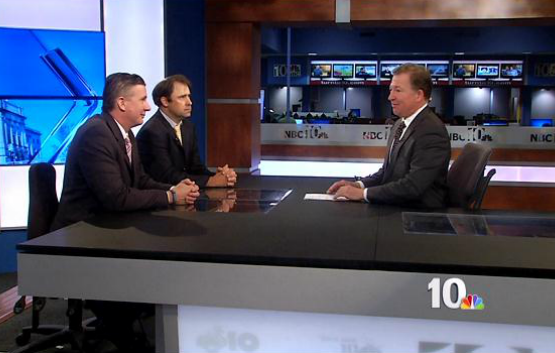
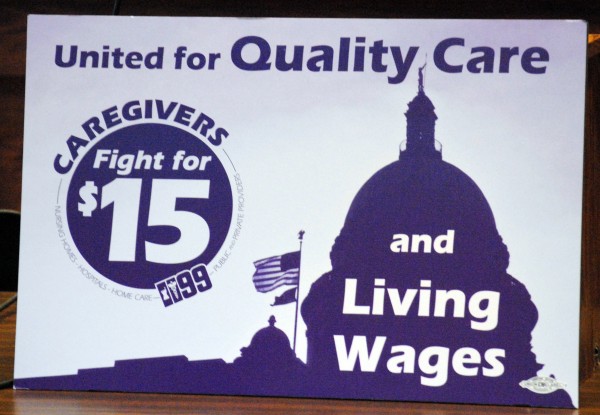 SEIU 1199, representing about 4,000 health care workers in RI, held a press conference to announce a series of initiatives “to improve the way the state invests in Medicaid-funded programs in long-term care and create a pathway to living wages for caregivers.”
SEIU 1199, representing about 4,000 health care workers in RI, held a press conference to announce a series of initiatives “to improve the way the state invests in Medicaid-funded programs in long-term care and create a pathway to living wages for caregivers.”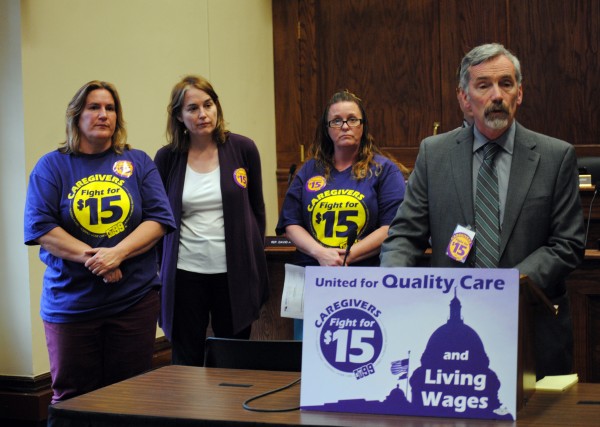 Speaking in support of the SEIU’s effort was Jenn Steinfeld of the Women’s Fund of Rhode Island, who sees this as both a social justice and gender equity issue.
Speaking in support of the SEIU’s effort was Jenn Steinfeld of the Women’s Fund of Rhode Island, who sees this as both a social justice and gender equity issue.









 Showing the ubiquitous artists rendering of the proposed downtown stadium, Matheson said that it “would be a fantastic stadium for the owners to spend their own money on.”
Showing the ubiquitous artists rendering of the proposed downtown stadium, Matheson said that it “would be a fantastic stadium for the owners to spend their own money on.”


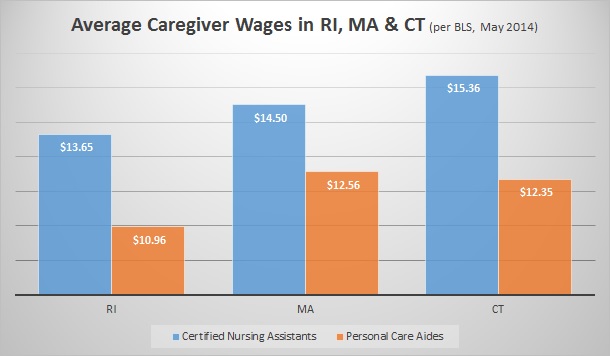

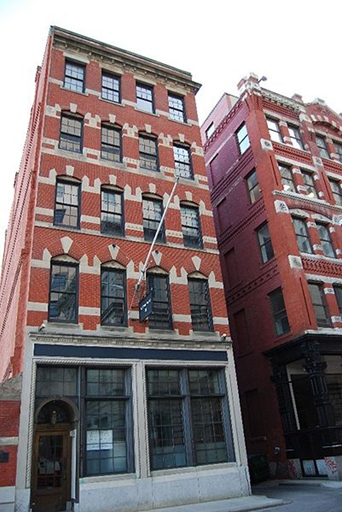

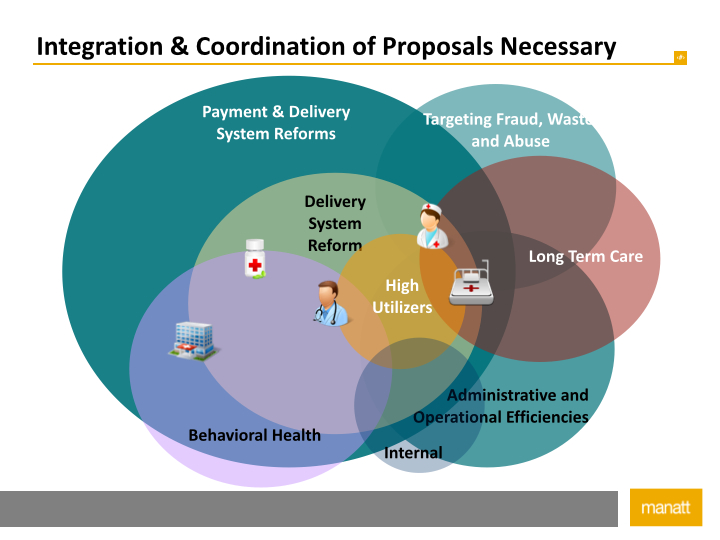
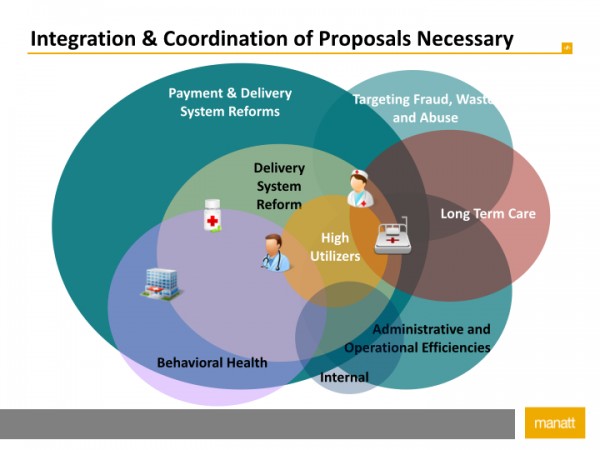 The 7th Annual Budget Policy Conference, a fundraiser for the
The 7th Annual Budget Policy Conference, a fundraiser for the 

